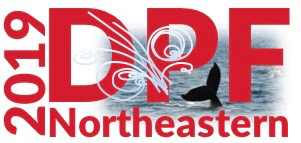Speaker
Description
The reconstruction of charged particles’ trajectories plays a crucial role to achieve the research goals of high energy physics experiments. While track reconstruction is one of the most complex and CPU consuming parts of the full data processing chain, the performance of ATLAS' track reconstruction software has gone through stringent tests in the dense environment at the LHC. To greatly increase the sensitivity to new physics, the LHC will enter the High-Luminosity LHC (HL-LHC) era in the middle of 2026. To preserve tracking performance in the much more dense environment with up to 200 simultaneous collisions at the HL-LHC, concurrent algorithms need to be developed to exploit modern computing architectures with many cores and accelerators. Careful handling of detector event and conditions data are required to support multithreaded execution chains aimed at minimising the memory footprint per core.
The ACTS project aims to encapsulate the well-tested and high-performance tracking software from ATLAS experiment and provide a set of highly experiment-independent and framework-independent reconstruction tools for modern computing architectures. The core of ACTS is designed to be agnostic to the details of the detection technologies and magnetic field configuration. Plugins to convert different geometry description formats are provided to interface with other external tools. Implementation of tracking geometry is optimized for fast and efficient navigation throughout the detector geometry. Interfaces of tracking algorithms, e.g. seed finding and KalmanFitter are designed to be highly flexible to support customized implementations. The software has been fully tested for thread-safety to support parallel execution of the code and its data structures are optimized for vector operations to speed up linear algebra operations. It supports contextual detector conditions, which can include having multiple detector alignments or calibrations in memory with a minimal memory footprint.
In this talk, I will introduce the general goals of the ACTS project and the tracking reconstruction tools and interfaces already implemented in the ACTS software. Tracking features already achieved will be highlighted by demonstrating the performance with prototype detectors. Plans for future developments for the ACTS project will be discussed.
